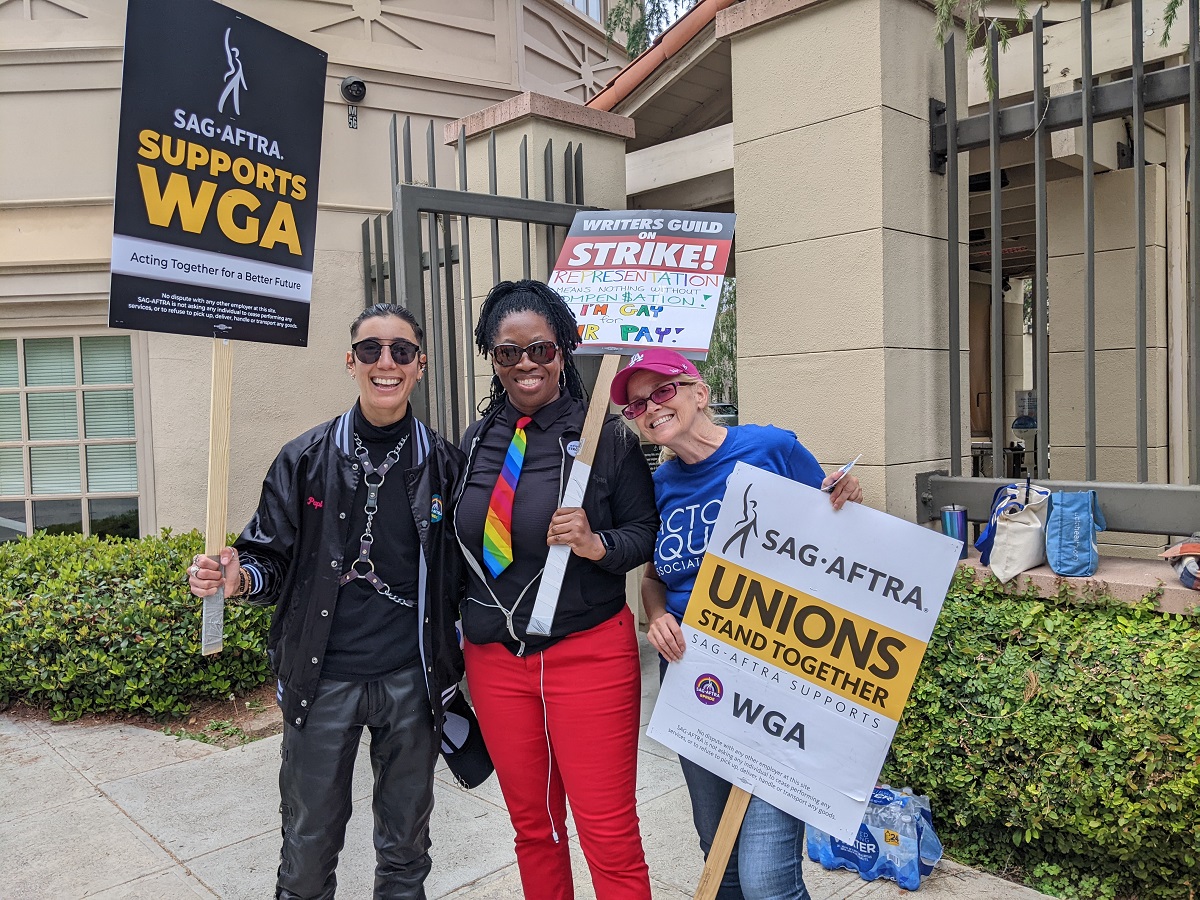Will They, Won’t They? Here’s What SAG-AFTRA’s Strike Decision Could Mean

Over the past few weeks SAG-AFTRA (the union representing over 160,000 actors and other performers) has been negotiating their contract with the AMPTP (the negotiating entity for the big studios and corporations that produce and distribute TV and film) as the Writers Guild of America continues its strike, now in its eleventh week.
While SAG members overwhelmingly voted to authorize a strike if a deal isn’t reached by the time their contract expires, they are still negotiating. Their contract was originally set to expire on June 30, but the union extended their negotiations until midnight Pacific Time on July 12. This means that if SAG and the AMPTP don’t come to an agreement, SAG could go on strike tomorrow and join the WGA on the picket lines.
Needless to say, Hollywood has been freaking out about whether this will happen and what it means. On Monday, SAG-AFTRA hosted a call with all the top Hollywood publicists to go over what the rules would be should the union go on strike this week. While information out of the call was minimal, a strike would affect everything from production to whether performers will be attending San Diego Comic-Con next week to promote various projects.
Discussion of AI seems to be a major sticking point in the final hours of the negotiation. According to Deadline, sources close to the SAG-AFTRA negotiations are saying that, much like they did with the writers, AMPTP is refusing to address the use of AI in any substantial way. Actors aren’t having it:
“This is a power grab, pure and simple,” a well-established actress said of the AMPTP’s stance on AI. “We see what’s coming. They can’t pretend we won’t be used digitally or become the source of new, cheap, AI-created content for the studios.”
What would the impact of a SAG-AFTRA strike be?
In a word: HUGE.
If the actors do go on strike tomorrow, that means an immediate halt on production everywhere. Even on shows and films that have been attempting to continue production during the Writers’ Strike. It means even more delays for new shows and films, and it means that performers will be doing less press and making fewer—if any—appearances to promote projects that have already been made.
And while SAG-AFTRA members have already been so supportive of the WGA by joining the picket lines in solidarity, a SAG-AFTRA strike would bolster both unions and put a huge amount of pressure on the AMPTP to revisit both contracts more fairly.
If the actors don’t go on strike tomorrow, it means they reached a deal that satisfied their negotiating team, which is great for them!
It would also mean that the AMPTP would have no choice but to start negotiating with the writers again, or look really, really bad. Their excuse up until now has been that they can’t negotiate with the WGA while the DGA and SAG negotiations are ongoing. With SAG settled, the writers could use whatever deal the actors got on things like residuals and AI as a jumping off point to get back to the negotiating table.
Either way, we’re a long way from getting back to normal in Hollywood. And it might get a lot more difficult this week!
(featured image: Teresa Jusino)
Have a tip we should know? tips@themarysue.com